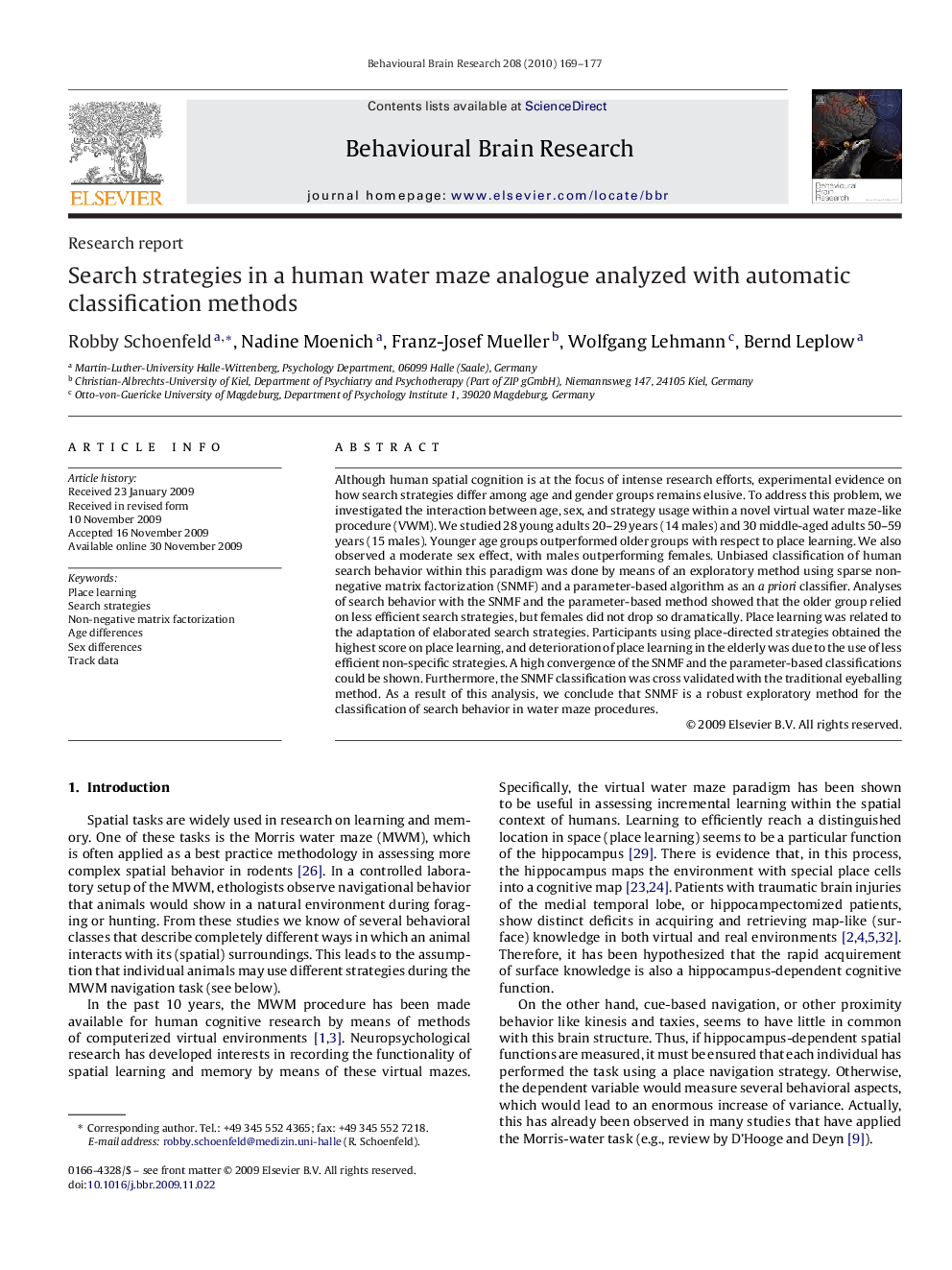| Article ID | Journal | Published Year | Pages | File Type |
|---|---|---|---|---|
| 4314293 | Behavioural Brain Research | 2010 | 9 Pages |
Although human spatial cognition is at the focus of intense research efforts, experimental evidence on how search strategies differ among age and gender groups remains elusive. To address this problem, we investigated the interaction between age, sex, and strategy usage within a novel virtual water maze-like procedure (VWM). We studied 28 young adults 20–29 years (14 males) and 30 middle-aged adults 50–59 years (15 males). Younger age groups outperformed older groups with respect to place learning. We also observed a moderate sex effect, with males outperforming females. Unbiased classification of human search behavior within this paradigm was done by means of an exploratory method using sparse non-negative matrix factorization (SNMF) and a parameter-based algorithm as an a priori classifier. Analyses of search behavior with the SNMF and the parameter-based method showed that the older group relied on less efficient search strategies, but females did not drop so dramatically. Place learning was related to the adaptation of elaborated search strategies. Participants using place-directed strategies obtained the highest score on place learning, and deterioration of place learning in the elderly was due to the use of less efficient non-specific strategies. A high convergence of the SNMF and the parameter-based classifications could be shown. Furthermore, the SNMF classification was cross validated with the traditional eyeballing method. As a result of this analysis, we conclude that SNMF is a robust exploratory method for the classification of search behavior in water maze procedures.
